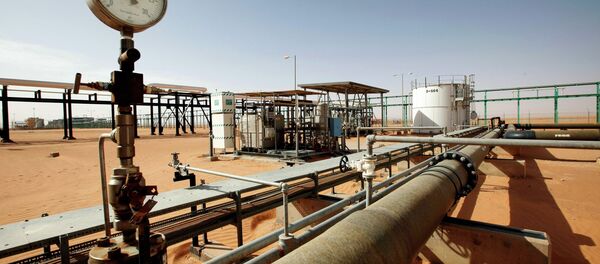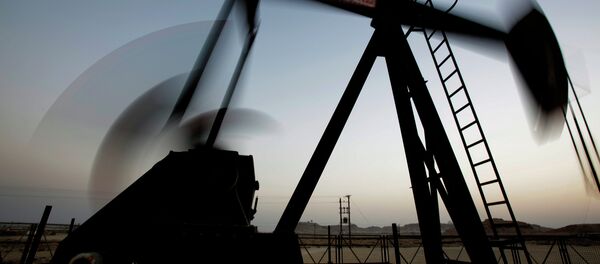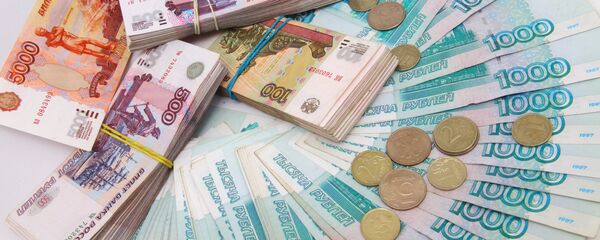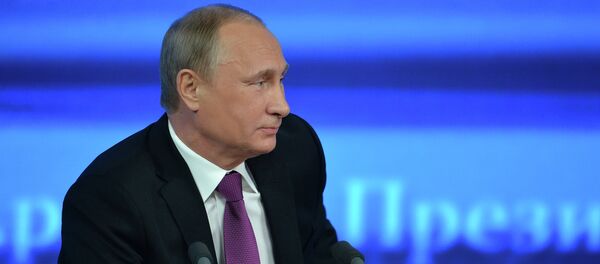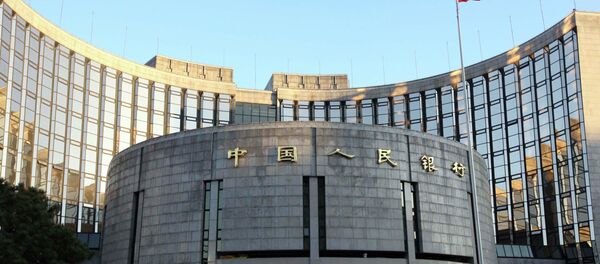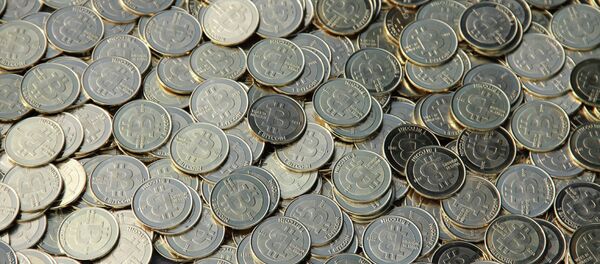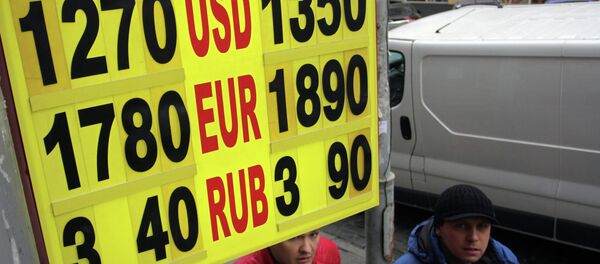MOSCOW, December 25 (Sputnik), Alexander Mosesov – As the whole world enters the new year of 2015, so does the economy, which has seen quite a few game changers in 2014 and, in some aspects, saw the transformation of decades-long trends.
To have a better understanding of the current economic situation and possible future developments, here is a look at some of the most notable events in the world economy that triggered a shift in macroeconomics and geopolitics.
The major issue in 2014 world economics was the sharp decrease of oil prices, the result of many factors. Brent levels began the year at levels above $100 per barrel, peaking at $110 and higher in June. It is now selling at around $60 per barrel.
Among the main reasons for the latest oil price decrease was a late November announcement by the Organization of Petroleum Exporting Countries (OPEC) to keep oil production volumes at current levels.
OPEC’s move was not welcomed by many oil producing countries, including some OPEC member-countries, and has severely impacted many of the world’s oil exporters with Russia among the main victims.
Russia's Economy: Heading Toward Recession
Despite Russia’s steadfast denial of the allegations, many of its prominent citizens, mostly civil servants, have been banned from travelling to the countries imposing the sanctions, and their assets and property in those countries has been frozen. Other restrictions targeted the country’s banking, energy and defense sectors. Among the prohibitions is the issuing of new loans to banks, the exclusion of oil and defense companies from western financing and the banning of dual-use goods and sensitive technologies to Russia.
An indication of the two negative factors’ influence on the Russian economy is the GDP estimate. The Ministry of Economic Development predicts a decline in the country’s GDP in 2015 of 0.8 percent with the Prime Minister Dmitry Medvedev stating in December that Russia has a risk “of falling into a deeper recession than may actually occur.”
United States Vs. China: Who is №1?
“Real gross domestic product — the value of the production of goods and services in the United States, adjusted for price changes — increased at an annual rate of 5.0 percent in the third quarter of 2014,” the US Department of Commerce said in a statement, marking the country’s best third quarter GDP growth in 11 years.
Despite the decline in the first quarter, partly explained by harsh weather conditions in the country, and by primarily internal factors of the GDP hike in the third quarter that included a rise in personal consumption expenditures (PCE), the US economy is expected to grow by no less than 2.1 percent in 2014 and by almost 3.1 percent in 2015, according to the International Monetary Fund (IMF).
As for China, its GDP growth “has declined somewhat in 2014 amidst the on-going property market correction and the resulting weak demand in upstream industries. Growth is projected to continue to edge down in the next two years, to around 7 percent,” the Organization for Economic Co-operation and Development (OECD) stated in a November summary.
China’s economic slowdown did not prove to be an obstacle for the country to overcome the United States, in terms of the purchasing power parity (PPP) based GDP, for the first time in history. This event, long discussed and forecast, became a reality when the IMF in 2014 calculated the US GDP at $17,4 billion and China’s GDP at $17,6 billion.
World's Plummeting Currencies: Ruble, Hryvnia.. Bitcoin
The Russian ruble has been gradually losing value relative to the euro and the dollar throughout the year. Oil prices and other factors, including sanctions and geopolitical risks arising from the ongoing conflict in Ukraine, have led the currency to steadily diminish against the US dollar and the euro, with the dollar hovering around 53 rubles and the euro near 63 rubles at the close of 2014.
The currency of Ukraine, a country that has been engulfed in an internal military conflict since April, has been devalued heavily. Since January, it has lost nearly a half of its worth, trading at around 16 hryvnias per US dollar at the end of 2014. The country’s inflation could rise to 22 percent by the year-end.
The world will be entering 2015 with China as its new economic leader (if only in terms of PPP based GDP). The evolution of the world’s financial architecture and its impact on global populations will be influenced by many factors, and among them will be cheap oil, a recession in Russia, a deep economic crisis in Ukraine and challenges for oil-exporting countries.


